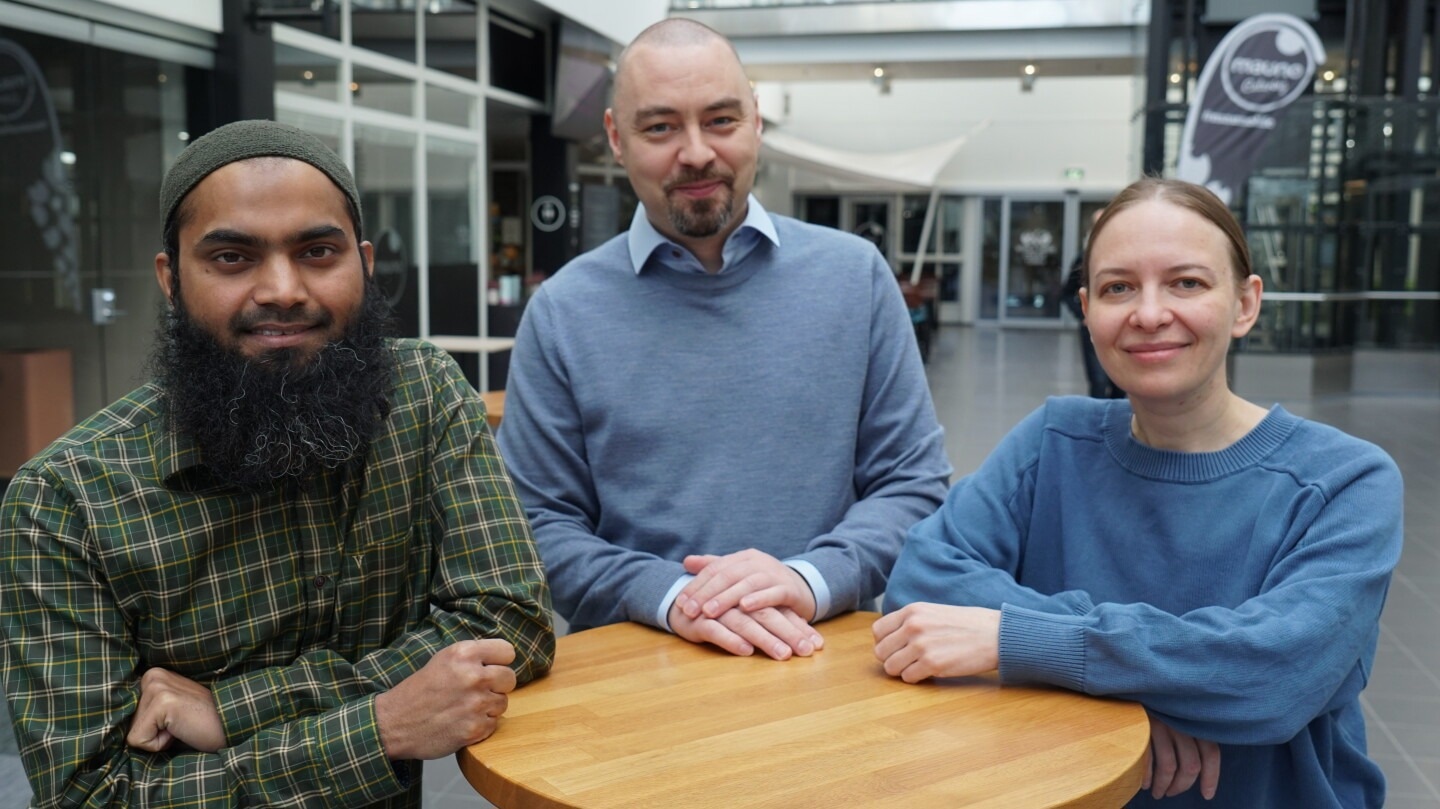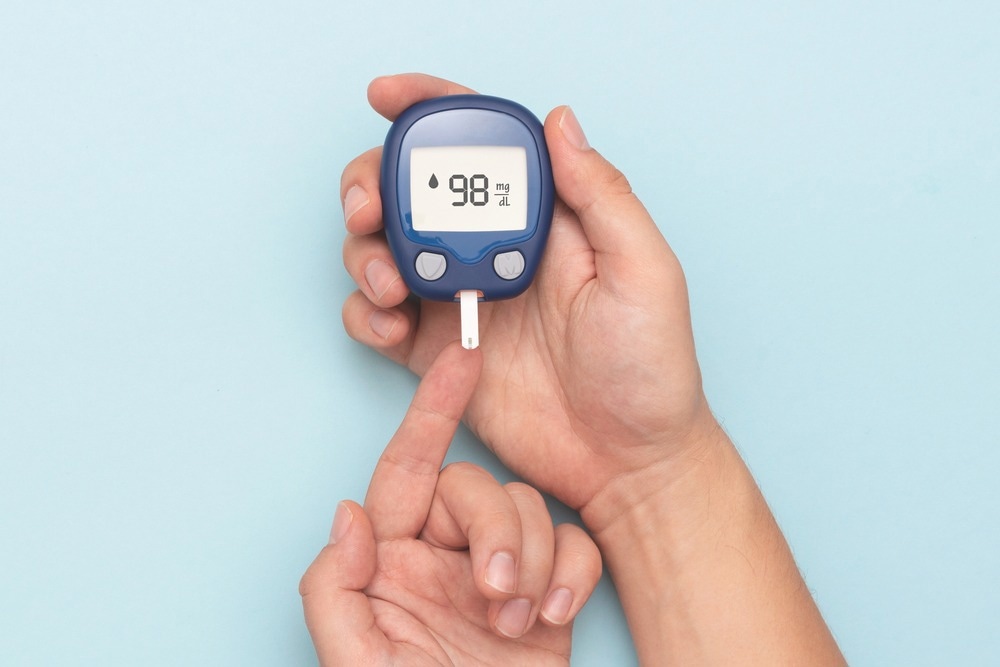A gene expression signature that has the potential to forecast the advance of type 1 diabetes has been determined by scientists from Turku Bioscience Centre and InFLAMES Flagship at the University of Turku in Finland.
 In addition to Riitta Lahesmaa and Laura Elo, the first authors of the article included (from left) Senior Researcher Ubaid Kalim, Postdoctoral Researcher Tomi Suomi, and Doctoral Researcher Inna Starskaia. Image Credit: Kuvaaja/Tekijä Liisa Koivula
In addition to Riitta Lahesmaa and Laura Elo, the first authors of the article included (from left) Senior Researcher Ubaid Kalim, Postdoctoral Researcher Tomi Suomi, and Doctoral Researcher Inna Starskaia. Image Credit: Kuvaaja/Tekijä Liisa Koivula
The study headed by Professor Laura Elo and Professor Riitta Lahesmaa aimed to determine transcriptional changes linked to disease progression in patients with recent-onset type 1 diabetes.
Blood samples were examined by the scientists gathered as part of the global INNODIA partnership. A few gene expression signature was found to be linked to rapid disease progression.
“One benefit of such predictive signature would be the ability to intervene earlier in the disease process. This could help slow the progression of the disease and potentially prevent or delay the onset of symptoms. Another benefit would be improved monitoring of the disease progression, which would allow for more personalized treatment plans and better outcomes for patients,” explained Elo and Lahesmaa.
Type 1 diabetes is considered to be a complicated autoimmune disease where insulin-producing beta cells in the pancreas have been ruined. Disease progression changes between individuals and there is no way to forecast the individual outcomes at present.
Patients are Involved in INNODIA
INNODIA is a global collaboration happening between six industrial partners, 31 academic institutions, a small-sized enterprise, and two patient organizations. Their common aim is to combat type 1 diabetes.

Image Credit: Proxima Studio/Shutterstock.com
INNODIA analyzes samples and data collected from newly diagnosed patients with type 1 diabetes and also unaffected first-degree relatives across Europe. The project has been headed under the framework of the European Union’s Innovative Medicines Initiative–Joint Undertaking (IMI-JU) with devoted governance.
Importantly, INNODIA is closely guided by the patients themselves, through the Patient Advisory Committee, consisting of a group of type 1 diabetes patients and parents. They give continuous feedback on the concept of INNODIA and development of protocols, and are crucial in disseminating the goals of the project to the public.”
Riitta Lahesmaa, Professor, InFLAMES Flagship Director, Turku Bioscience Center, University of Turku
Lahesmaa mentions that as a result of the INNODIA research, the science community will be able to gain better insights into the relationship between variations in β-cell function, genetic, immune profiles, and environmental factors and their role in the onset of the disease.